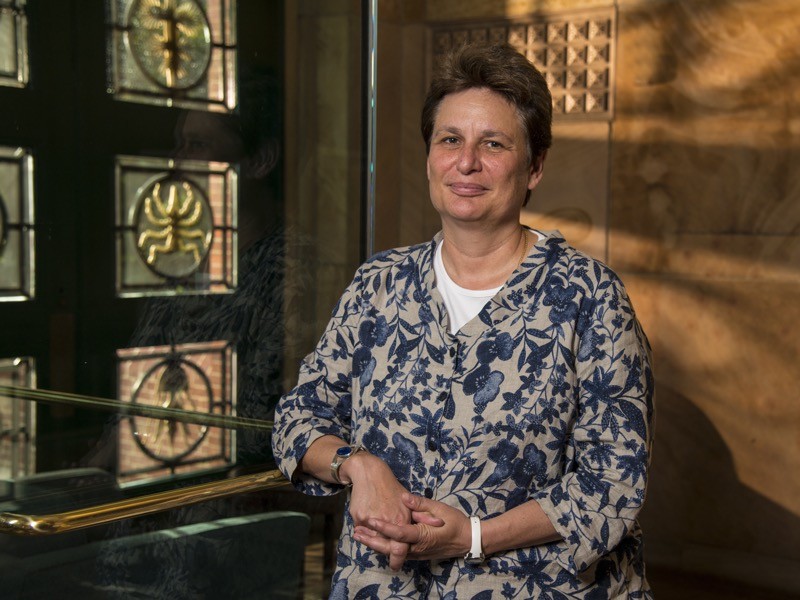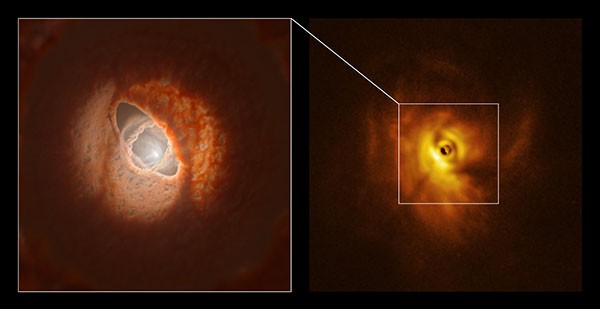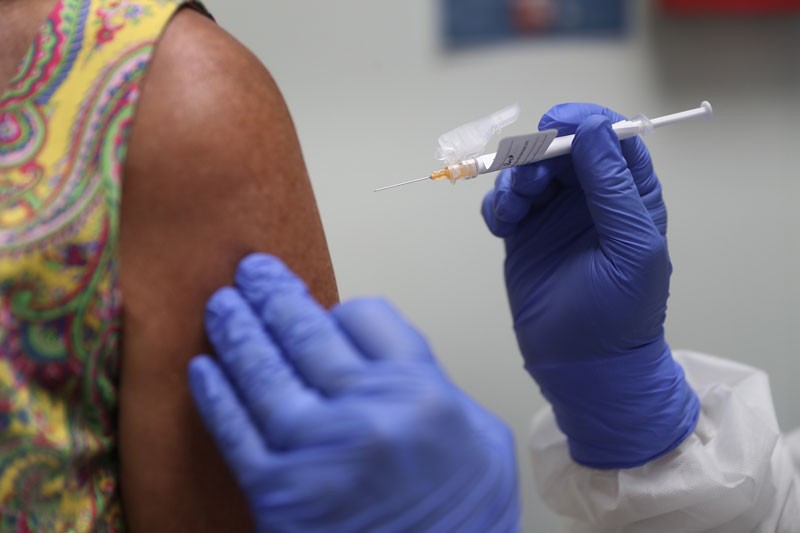Daily briefing: The Voyagers’ surprising view from outside the heliosphere
Two distant NASA probes reveal the roiling chaos of the interstellar medium. Plus: discover some of the promising coronavirus vaccine candidates you might not have heard of and meet the $3-million Breakthrough Prize winners.
by Flora GrahamHello Nature readers, would you like to get this Briefing in your inbox free every day? Sign up here

Credit: Rick Friedman/Corbis/Getty
US$3-million Breakthrough Prize winners
Discovering the “on-and-off switch” for good parenting in both male and female mouse brains has earned molecular biologist Catherine Dulac one of the most lucrative awards in science and mathematics. “My brain froze, then I began to tear up,” says Dulac of the moment she heard the news. Three more US$3-million Breakthrough prizes in biology were also announced today, plus two in physics and one in mathematics, together with a number of smaller prizes.
We’ve saved up to 48 species since 1993
Conservation efforts have saved up to 48 bird and mammal species from extinction since 1993, when the UN Convention on Biological Diversity came into force. The Iberian lynx, California condor and pygmy hog are among those that have been saved. Researchers estimate that extinction rates would have been three to four times greater without conservation action. Many of the species are still endangered. “This is a call to action,” says study co-leader Phil McGowan. “The loss of entire species can be stopped if there is sufficient will to do so.”
Reference: Conservation Letters paper
Star system shreds its planet-forming disk
Astronomers have observed, for the first time, a multi-star system ripping apart the disk of material that could form planets. The three stars of GW Orionis have pulled some of their surrounding gas and dust into a warped disk with tilted rings. The rings could someday form planets with wildly oblique and distant orbits. “We are looking at what could eventually become an unusual type of planetary system in the very process of forming,” says study co-author Alison Young.

ESO/L. Calçada, Exeter/Kraus et al.
CERN
1.2 terawatt-hours
The electricity used by CERN in years when the accelerators are running — about 2% of all the electricity consumed by Switzerland. (CERN Environment Report)
COVID-19 coronavirus update

Credit: Joe Raedle/Getty
The underdog coronavirus vaccines
You might have heard about the front-running vaccines from organizations including Moderna, CanSino and the University of Oxford (although trials for the latter are on hold). But with more than 300 vaccines at some stage of development, some very promising candidates are struggling to get attention and funding. Many have notable advantages: tried-and-tested manufacturing techniques, for example, or an easy and promisingly effective dose through the nose. The world will need these alternatives should early favourites fail for safety, efficacy or practicality reasons. “Everyone is rooting for them to succeed beyond anyone’s expectation, but it’s prudent to think about what happens if they don’t,” says virologist Dave O’Connor. “We need to make sure we have back-up plans — and back-up plans to those back-up plans.”
Features & opinion
How the FDA should protect its integrity
The US Food and Drug Administration (FDA) is facing criticism over whether politics is exerting an undue influence on its decisions about COVID-19 treatments. Joshua Sharfstein was acting commissioner of the agency in 2009, when it faced similar questions about undue influence. He argues that the lessons learnt then about trust and integrity are even more essential now. “Soon, amid a cacophony of misinformation and confusion, amplified by political polarization and social media, Americans will have to weigh the merits of vaccination,” says Sharfstein. “The integrity of the country’s leading public-health regulatory agency is more than an abstraction; it is a matter of life and death.”
Hello from the outside
Voyager 1 and Voyager 2 are unveiling for the first time what our Solar System looks like from the outside. The two NASA spacecraft, launched in 1977, are now both more than 16 billion kilometres from Earth. They were the first to cross the boundary of the heliosphere — the protective bubble formed by the solar wind. They have revealed that what appears to be vast nothingness is actually a roiling soup of clashing magnetic fields.
How to learn to love web scraping
Data available online can be messy. Building a web scraper automates tasks such as gathering information from separate PDFs or web pages into a more usable format, such as a spreadsheet. Building a web scraper can also teach you about software development, boost confidence and feel like a research superpower, say three researchers who build data-wrangling tools to support evidence-based medicine.
Image of the week
Revive & Restore/ViaGen Equine/San Diego Zoo Global
Quote of the day
“There’s a body of knowledge you develop as a community that cannot be replicated by Western science.”
Anthropologist Julie Raymond-Yakoubian lauds an example of a successful collaboration that gave oceanographers access to the wide-ranging knowledge of Indigenous Alaskan people. (Science | 7 min read)
This newsletter is always evolving — tell us what you think! Please send your feedback to briefing@nature.com.